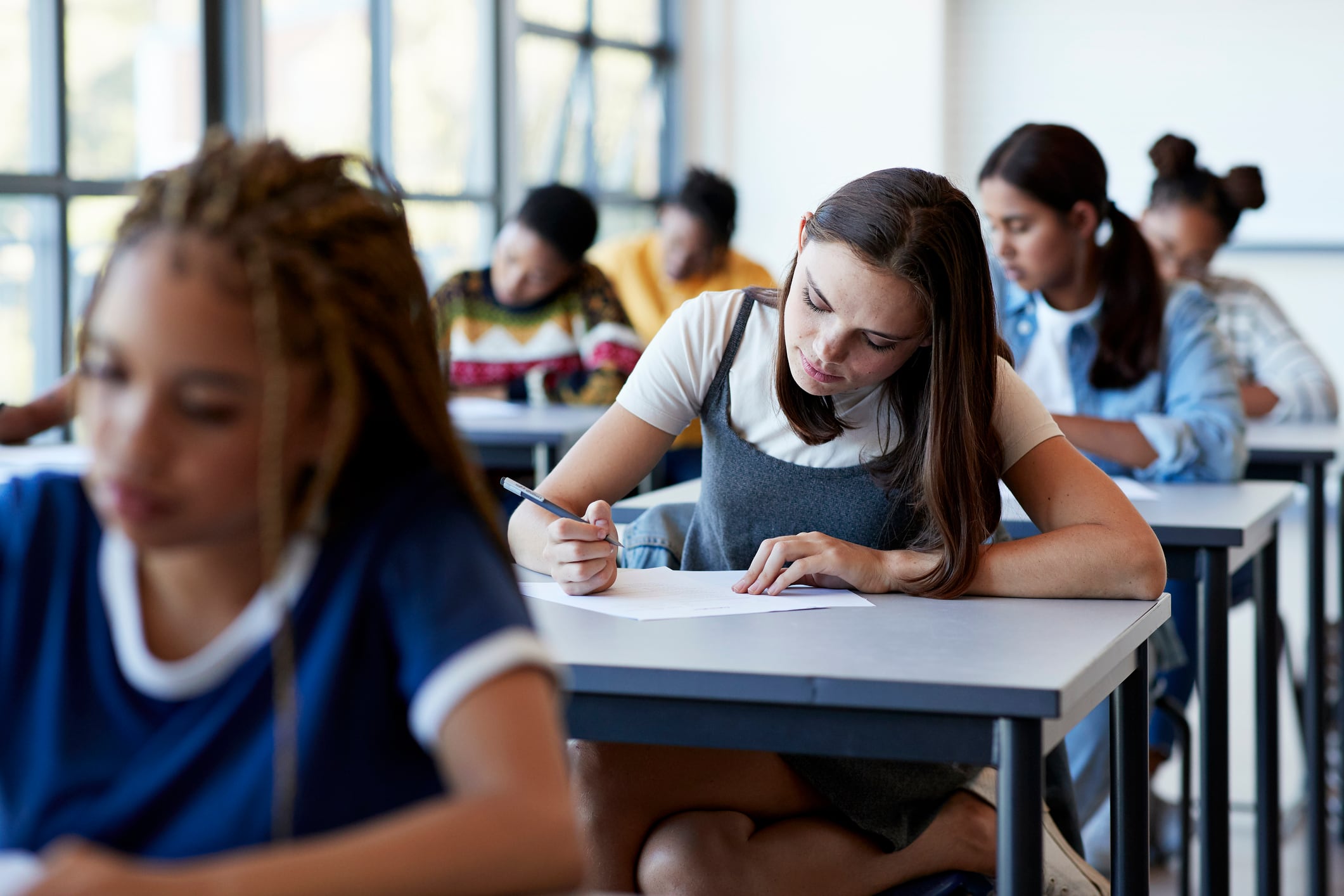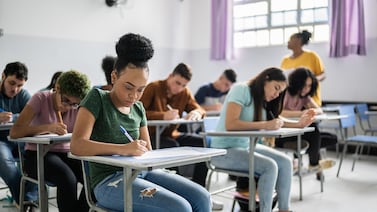It’s testing season in New York once again.
Schools across the state will administer standardized reading and math exams for grades 3-8 in April and May, as well as science exams for eighth graders in June.
With the intense attention on the pandemic’s effect on students, some schools might be ramping up their focus on the state tests. Some districts have signed up their schools for computer-based programs for math and reading, according to Nathaniel Styer, a spokesperson for the city education department. It’s part of a learning “acceleration” initiative launched earlier this year by the education department, Gothamist reported.
There might be more attention on this year’s state tests, following the spotlight on last year’s dip in national test scores, which also showed drops in fourth grade math scores in New York City.
But there’s a big caveat with the state tests: This year, the exams are based on new learning standards and can’t be compared to results from the last school year, when nearly half of students passed reading exams and 38% passed math.
Many educators and families argue that testing takes away classroom time and doesn’t tell the full story of how a student is doing — a viewpoint schools Chancellor David Banks has previously echoed. Others believe it is a useful tool.
State officials said the tests are just “one tool” that helps teachers understand their students’ academic needs.
Here are some things you should know about the upcoming exams:
When are the tests and how will they be administered at schools?
Schools will give the state English test over a consecutive, two-day period between April 19-21. If students are absent those days, they can make up the tests between April 24-28.
Two weeks later, students will take math tests from May 2-4 with make-up dates scheduled for May 5-11.
Eighth graders will take a science laboratory exam between May 23 and June 2 and a written exam on June 3. Make-up tests for the lab exam must happen sometime within that testing window, while make-up dates for the written exam take place between June 6-9. There will be no fourth grade science test as the state prepares to transition to a science test for fifth graders, beginning next spring.
Most New York City schools will give the exams on paper. So far, 130 schools plan to use computer-based testing, Styer said — which has sometimes come with technical issues across the state. For computer-based tests, the window for English exams will be April 19-26 and for math will be May 2-9.
While computer-based testing is currently optional, mandated computer-based state testing will begin next spring for grades 5 and 8. All schools will be required to give the exam on computers in the spring of 2026 for all grades.
How will the tests be different this year?
For the first time, this year’s state tests will be based on the “Next Generation Learning Standards,” a set of grade-level learning standards established in 2017 that were revised from the controversial Common Core standards.
The Next Gen standards, as they’re often called, were meant to clarify previously vague language from the Common Core. For example, whereas Common Core geometry standards simply stated that students must be able to “prove theorems about triangles,” Next Gen’s revisions detailed the specific theorems.
When the state’s Board of Regents adopted the new standards, some groups lauded them for not straying too far from Common Core, while other education organizations said the standards were too rigorous for early grades.
What do the new tests mean for scoring them?
New tests also mean that the state will determine new benchmarks of what makes a student proficient in reading, math, and science. This summer, teachers will participate in a process where they will decide what students need to know in order to demonstrate that they’re meeting grade-level standards – otherwise known as being proficient – on state exams. That process will impact scoring for this spring’s tests.
“It’s a matter of judgment to decide, ‘OK, we think a student who’s proficient should be able to answer this question correctly, say, two-thirds of the time,’” said Aaron Pallas, a professor at Columbia University’s Teachers College, giving an example.
Can we compare scores to last year?
No. Because the tests are new, the results can’t be compared to last year’s scores. Studying scores from year to year is helpful for understanding progress students have made — especially amid the pandemic.
But because state officials have warned against comparing results to previous years whenever the test changes, it’s been impossible to consider trends over the better part of a decade.
In 2016, New York allowed students to have unlimited testing time and cut the number of questions. In 2018 the state went from three testing days to two. The exams were canceled due to the pandemic in 2020, and the following school year, a fraction of students took shortened exams with just a quarter in New York City — far less than 2019.
They advised against comparisons with last year’s scores because looking at a student’s performance in 2022 versus 2019 would “ignore the enormous and, in many cases, grievous impact of the COVID-19 pandemic on students, families, teachers, and entire school communities,” a spokesperson for the state education department said in a statement.
That may be frustrating to some educators, families, and researchers because it makes it impossible to see long-term trends of student performance and growth. These exams, however, are just one indicator of how well students are doing in New York, said Pallas, and should be viewed along with other metrics, such as graduation rates and college acceptance rates.
“The state testing system is just one piece of evidence that has to be put into relation to all the other things that are available,” Pallas said.
How are my child’s scores used?
Schools are federally required to administer these exams, and districts are required to assess 95% of their students.
In New York City, the exams are used to see where students are meeting grade-level expectations “as well as students that need academic intervention in literacy and math,” Styer said.
State officials have said that these scores are just one measure of how a student is doing in school. However, the scores don’t come back until the fall – meaning teachers can’t see them the year that children take the exams.
In New York City, high schools and middle schools that screen students for admission can no longer take state test scores into account.
Can I opt my child out?
Yes. While federal officials require schools to administer these tests, parents can pull their children out. New York City’s education department has previously advised parents to speak with their child’s principal if they’re interested in opting out.
Last year, 10% of students opted out of exams compared with 4% in 2019.
Federal law requires states to give assessments to at least 95% of students. If fewer students participate at a school, it could contribute to the school being labeled as struggling – which state officials define as needing “targeted” or “comprehensive” support. But generally, low test participation may only affect a school’s accountability status if it’s combined with bad results on other measures, such as chronic absenteeism, according to state education officials.
Reema Amin is a reporter covering New York City public schools. Contact Reema at ramin@chalkbeat.org.







